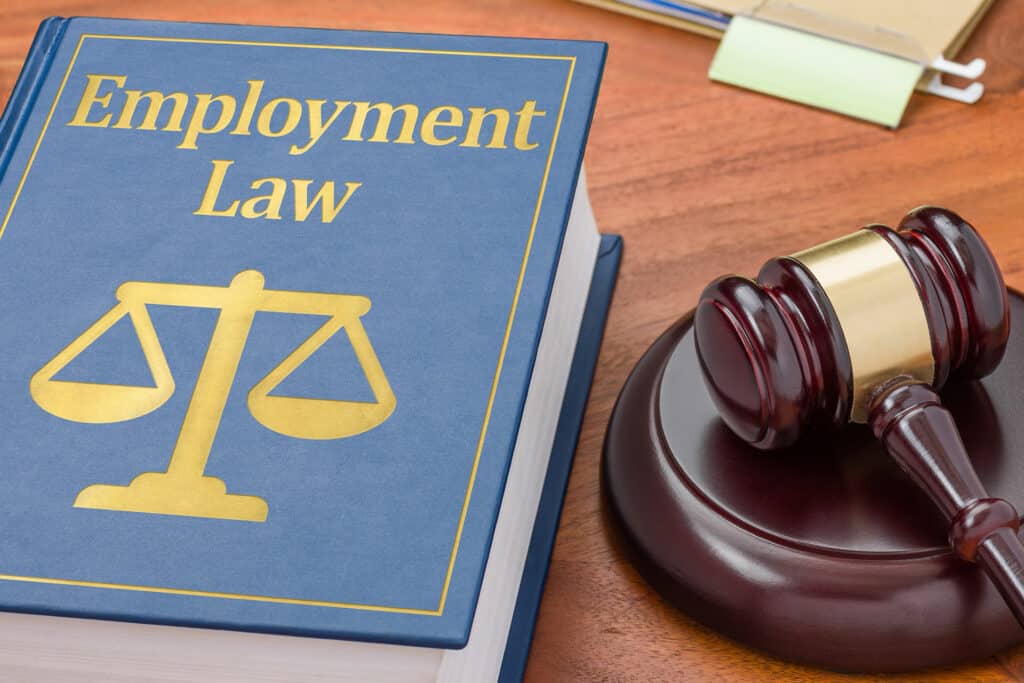What you need to know about the latest developments in employment law
New Zealand’s employment law is constantly changing whether as a result of new legislation or case law developments. Employment lawyers, Edwards Sluiters Employment Lawyers, provide a brief update on some of the recent changes.

1. Fair Pay Agreements are now law
Despite significant criticism from businesses and industry groups, the Fair Pay Agreements Act 2022 is now in force, and the framework for implementing Fair Pay Agreements will come into effect from 1 December 2022.
You can read more on this in our article 5 Key Points To Know About Fair Pay Agreements.
2. Uber drivers deemed employees, not contractors
Recently, the Employment Court (“Court”) determined that four current and former Uber drivers were employees, and not independent contractors. This will entitle the Uber drivers to the usual suite of employment entitlements such as minimum wage, holiday pay, sick leave, and KiwiSaver. This determination follows similar international decisions regarding Uber drivers, including in the UK, France, California, and the Netherlands.
The Court considered the ‘true nature’ of the working relationship and decided that, although the drivers had agreed to be engaged as contractors and this was stated in their contract with Uber, the level of control Uber had over the drivers meant they were in fact employees, rather than contractors.
Although this determination only applies to these four current and former Uber drivers, it opens the door for other Uber drivers, and other workers in the ‘gig-economy’, to seek similar recognition of their employment status.
Also, if Uber drivers are considered employees rather than contractors, they would be able to unionise and bargain collectively with Uber. This could see a collective employment agreement, or even a Fair Pay Agreement, for Uber drivers in New Zealand.
Uber has stated that it is disappointed with the Court’s decision, and that it intends to appeal the decision to the Court of Appeal. Given the potential for this determination to dramatically increase its costs and undermine its profitability, we can expect Uber to fight hard to get the Court’s decision overturned.
Case: E Tu Inc & Anor v Raisier Operations BV & Ors [2022] NZEmpC 192

3. Employee denied application for interim reinstatement, largely due to post-dismissal conduct
Recently, an employee challenged the Employment Relations Authority’s decision not to temporarily reinstate him to his former role until his main claims were resolved. The employee was dismissed because he didn’t comply with the COVID-19 vaccination mandate for his role at the time.
The Employment Court denied the employee’s temporary reinstatement for several reasons, including that his conduct after he was dismissed was “extreme”. What is considered “extreme” behaviour? After his dismissal, the employee sent the company a letter saying:
a) the company was to pay him $100 million, $10 million of which was to be deposited into the employee’s personal bank account, and the remaining $90 million to be provided in gold bullion
b) the company was to pay the employee a further $200,000 in gold bullion for every day, and $1 million in gold bullion for every month, after 27 September 2021
c) murder had taken place, and
d) the company, its Board, and its employees had subjected the employee to emotional assault, fraud, blackmail, and enticements into slavery.
According to the Court, the employee’s conduct following his dismissal made it impossible for him to be reinstated, even temporarily.
Case: HLI v VMZ [2022] NZEmpC 201
4. Employee liable to pay special damages of more than $90,000 to former employer
An employee was recently ordered by the Authority to pay his former employer $93,120.97 in special damages, as well as interest. This was for legal costs reasonably incurred by the employer in investigating and pursuing the employee’s breaches of his employment agreement.
The Authority determined that these legal fees were incurred as a direct result of the employee’s breaches, and they could have been avoided if the employee cooperated with the company’s investigation into his breaches and provided undertakings when asked.
It is rare to see an award of special damages against an employee, and they are generally reserved for exceptional cases.
Case: Key Industries Limited v Perrin [2022] NZERA 573
5. 12 months to raise claim for sexual harassment
Currently, to raise a valid personal grievance claim, employees must raise their claim with their employer within 90 days. However, a proposed law change will increase this timeframe to 12 months where the claims involve allegations of sexual harassment.
The Employment Relations (Extended Time for Personal Grievances for Sexual Harassment) Amendment Bill (the Bill”) was introduced to Parliament in October this year, and it has passed its First and Second Readings. If the Bill passes its Third Reading, it will be enacted into law (likely before the end of the year).
If you have any questions regarding these updates or NZ employment law, you can contact Edwards Sluiters Employment Lawyers directly at 0800 339 002.


